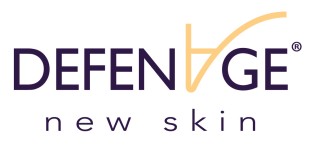
Wine, Alcohol and Skin Aging
If maintaining youthful looking skin is your goal, saying cheers to that next alcoholic beverage might put a wrinkle in your plans.
Contents:
Beer, Wine, Martinis, and More: How Drinking Affects Skin
Skin aging happens via two main processes: intrinsic (what’s going on in the inside, including your genetic makeup) or extrinsic (environmental factors). Skin aging - PubMed (nih.gov)
Researchers have found that key extrinsic factors that age skin are sun exposure, air pollution, smoking, alcohol abuse, and poor nutrition. Skin aging - PubMed (nih.gov)
Regularly exposing skin to these assaults can increase wrinkles, age and sunspots and patchiness, and an early warning sign of skin cancer called actinic keratoses. Skin aging - PubMed (nih.gov).
Drinking alcohol can also cause flares of the chronic inflammatory skin condition called rosacea, according to studies. Alcohol consumption and the risk of rosacea: A systematic review and meta-analysis - PubMed (nih.gov)
Why? Alcohol, whether from beer, wine or mixed drinks, breaks down the skin’s antioxidant defense system and causes blood vessels around the face to widen and can lead to visible broken blood vessels.
“Drinking dehydrates and inflames skin,” according to an article in Vogue magazine. The Effects of Alcohol on Skin and How to Manage Them | Vogue

How Much is Too Much?
In one of the larger studies looking at the effects of smoking and alcohol consumption on women’s facial skin, researchers studied more than 3,200 adult women of different ages, ethnicities and in different countries.
They found alcohol impacts skin in many negative ways, depending on how much the women reported drinking.
Drinking 8 or more alcoholic beverages appeared to age faces by increasing upper facial lines, under-eye puffiness, oral commissures (corners of the mouth that can look downturned with time), midface volume loss, and blood vessels. Impact of Smoking and Alcohol Use on Facial Aging in Women: Results of a Large Multinational, Multiracial, Cross-sectional Survey - PMC (nih.gov)
Those who reported drinking zero to seven alcoholic beverages a week was only associated with visibly increased under-eye puffiness and midface volume loss.
For those wondering, most (but not all) of the women in this study reported drinking wine or champagne.
While these results make sense, not all studies have found a correlation between drinking alcohol and perceived skin aging. Some have found no association between alcohol use and perceived age or increased wrinkles. Impact of Smoking and Alcohol Use on Facial Aging in Women: Results of a Large Multinational, Multiracial, Cross-sectional Survey - PMC (nih.gov)
For good health in general, the National Institute on Alcohol Abuse and Alcoholism recommends limiting alcohol to moderate drinking, which means adults of legal drinking age can choose not to drink or limit intake to 2 drinks or less in a day for men and 1 drink or less in a day for women.
“Drinking less is better for health than drinking more,” according to NIAAA. Drinking Levels Defined | National Institute on Alcohol Abuse and Alcoholism (NIAAA) (nih.gov)
Combating Skin Aging
Choosing antioxidant-rich foods and knowing what to look for in skin care ingredients and products can help diminish the results from extrinsic skin aging.
Something we can do to combat extrinsic skin aging is to nourish our bodies with the right foods. Having plenty of fruits and vegetables in one’s diet can increase antioxidants.
Rehydrate with water.

And consider skin care aimed at reducing wrinkles, diminishing skin discoloration and plumping (moisturizing) facial skin to target specific skin aging concerns.
Look for topicals (creams, lotions and serums) formulated to effectively deliver antioxidants, including vitamins E and C, coenzyme Q10, alpha-lipoic acid, glutathione, and more.
Retinoids or retinol in skin care can help, too. But many find the side effects from retinoid and retinol products are too harsh and abrasive for skin and stop using them. A proven and patented retinol alternative, defensins, work with skin cells to create young skin cells by stimulating young cells. Defensins, found only in patented DefenAge skin care products, have been shown in studies to have comparable results to retinol-containing skin care but without the side effects.
Ironically, There are the Ingredients in Wine…
Ironically, while drinking wine might age facial skin, applying wine extracts onto skin could counteract skin aging. Antioxidants | Free Full-Text | Identifying a Role of Red and White Wine Extracts in Counteracting Skin Aging: Effects of Antioxidants on Fibroblast Behavior (mdpi.com)
In fact, natural compounds found in wine could help regenerate tissue. Researchers studying wine’s antioxidant activity formulated skin care products with wine extracts after removing the alcohol. These include polyphenols and the antioxidant resveratrol in wine.
Where to Turn?

There are skin care regimens that have been scientifically shown to address skin aging concerns caused by extrinsic factors, including alcohol consumption. The patented DefenAge is one. Its 3-product skin care Clinical Product Trio uses Age-Repair Defensins®, niacinamide, hyaluronic acid, and a proprietary blend of natural antioxidants, enzymes and hydrating technologies shown to address environmental cell damage and defend against free radicals.
The results on facial skin, according to one trial, were global improvements to the visual appearance of aging skin without irritation, dryness, or inflammation.
Those applying the Trio saw visible improvements in wrinkles, pigmentation or discoloration, skin elasticity, dryness and skin thinning and density, and more.
Thinking Beyond Skin Health
Drinking too much at one time or on any given day or having too many drinks over the course of a week, increases risks beyond skin aging. According to the National Institute on Aging (NIA), Facts About Aging and Alcohol | National Institute on Aging (nih.gov) drinking too much alcohol over the long haul can increase risks of cancer, liver damage, immune system disorders and brain damage. It can worsen osteoporosis, diabetes, high blood pressure, stroke, ulcers, memory loss, and mood disorders.
The NIA offers strategies to help cut down on or quit drinking on NIH.gov Facts About Aging and Alcohol | National Institute on Aging (nih.gov).


